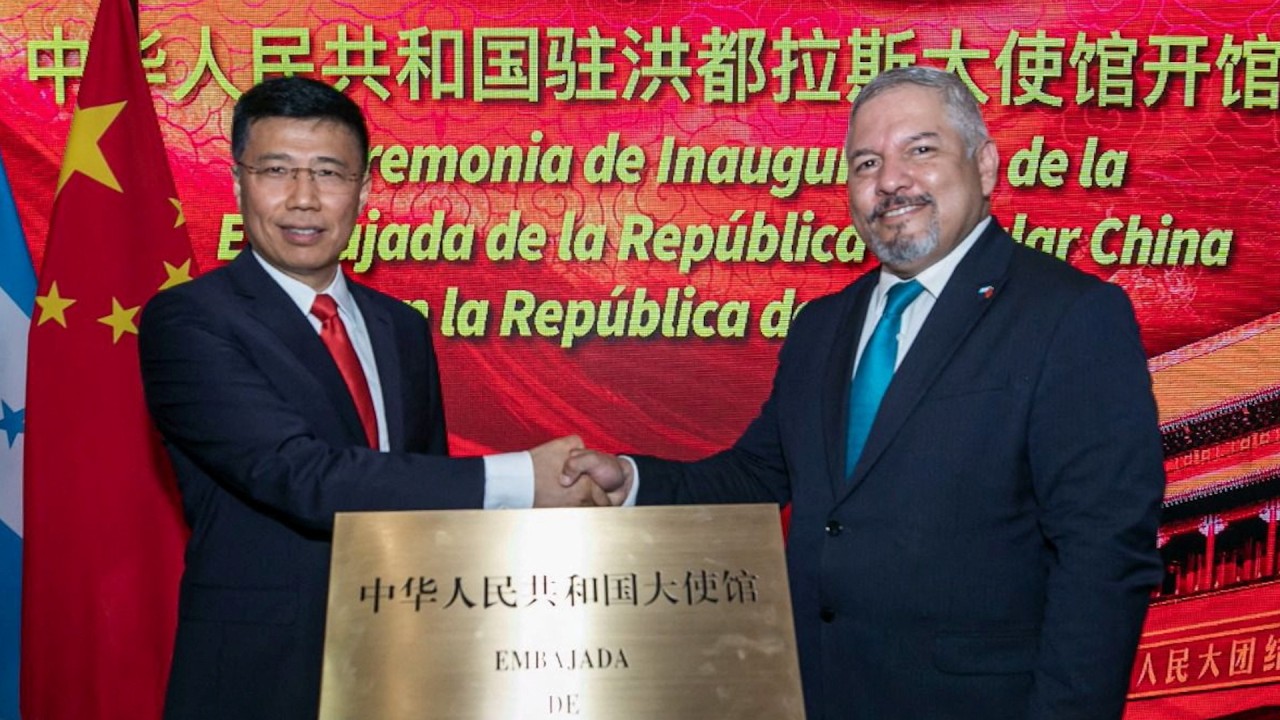
China narrowly ahead of US in global diplomatic presence – but this may not translate into greater influence
- Beijing has 274 diplomatic missions around the world, compared with 271 for Washington, a new study has found
- The Pacific Islands are one of the main spheres of competition for the two powers, with both expanding their presence in the region over the past year
The Global Diplomacy Index published by the Lowy Institute, an Australian think tank, found that China had 274 diplomatic missions around the world, compared with 271 for the United States.
“Great power rivalry is as prevalent in diplomacy as in other fields, with the United States and China dominating the rankings,” the report said. “Geopolitical competition has propelled the Pacific and Asia into focus.”
It said China overtook the US in the number of diplomatic missions in 2019 and Washington had not caught up despite opening more missions since then.
Diplomatic observers cautioned that this would not necessarily translate into greater power and influence for Beijing.
“The number of diplomatic posts just means better representation on the ground. That may but does not have to translate into better relations or greater effectiveness in getting what a state wants,” said Chong Ja Ian, an associate professor of political science at the National University of Singapore.
Josef Gregory Mahoney, a professor of politics and international relations at Shanghai’s East China Normal University, agreed, saying Beijing did not view it as a “zero-sum game”.
“I don’t think that we can simply say that more posts or more representation means that China is winning a diplomacy battle,” he said.
The study found that China has a larger diplomatic presence in Africa, East Asia, the Pacific Islands and Central Asia, while the US has more diplomats based in Europe, North and Central America and South Asia.
Chong said this highlighted the traditional areas of interest for both countries.
“Beijing in particular is seeking to build ties in Africa and the Pacific. They’ve always had a strong presence in East Asia, their home region, while Washington is bolstering their international representation to be sure, but there is no evidence from the survey that they are all a direct response to Beijing,” he said.
The report also highlighted the “rising competition for influence” across the South Pacific, where both countries have stepped up their presence, with Australia and several European countries also getting more deeply involved.
Mahoney warned against reading too much into which areas had a higher diplomatic presence, saying: “There could be different reasons why we have one level of representation versus another. But that doesn’t necessarily suggest that one country is valuing one area more – or less – than another.”
Beijing says Taiwan is part of China and insists that countries must adhere to the one-China policy as a condition for establishing diplomatic relations, something the vast majority of states have agreed to do.
However, the Lowy Institute report, which looked at the diplomatic presence of 66 countries and territories, said Taipei operated 110 overseas missions, but most of these were unofficial trade and cultural offices.
The report put Turkey in third place with 252 missions around the world, with Japan in fourth place with 251 postings.


